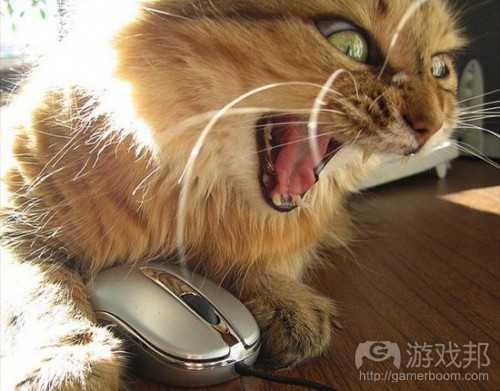游戏行业是否助长了负面评论效应?
作者:Brandon Sheffield
《质量效应3》是《质量效应》三部曲的收山之作,而这部作品已赢得玩家的广泛关注。他们已投入十几个小时维护自己的角色及军队,网络上充斥着关于游戏结局的多种猜测。
而当他们完成游戏时却出现了这种结果——有些玩家直言他们讨厌这样的结局。
因此,BioWare浏览了那些讽刺的评论,听取了一些请求,制作出了一个全新的结局,试图满足那些关注者。然而讨厌者依旧未表现出对它的好感。我们共同创造的游戏社区在这种负面评论的氛围下不断壮大,但我们却对此束手无策。
负面评论效应
游戏社区中的玩家粘性是一把双刃剑。获得粉丝的反馈,让人们参与游戏中是个不错的想法(也是必须的)。
然而网络是“强大的平衡器”,现在WeedSmokeBalls187觉得他的意见和这部作品的原创作者同等重要。网络言论的自由也更容易让大家觉得自己的发言也很重要,而闹得最大的意见常常会成为大家普遍接受的观点。
现在让我们来看看创作者的回应。一个写着“哇,我爱这款游戏!”的评论比“天啊,这游戏太糟糕了”受到的关注更少。包括游戏开发者和记者在内的所有人,都会对负面观点作出更快更大的回应。发响的轮子更耗油,如果评论想要引起他人关注,这是需要一些技巧的。
我认为人们不会故意做出这类事情,但是当制造出的反对言论更多,人们就会基于这些负面评论采取行动,而他们更加清楚这一办法非常奏效。他们知道这种行为可以获得结果,至少是得到回应,这一点深深体现在互联网和极客文化中。
最近在游戏领域的一个典型例子是,记者Patrick Klepek失去了一位至亲,他感到很伤心,并对外提起了这件事。不久之后,他写了一篇有些人不能认同的文章,甚至有人看完后做出评论:“我很高兴你的至亲去世了。”
当然,Klepek很生气,他就此发表了一篇博客。现在,我无法判断他是否该针对此事件做出回应,但是极少有人会为了一个网民讽刺性的言论而发表博客。总之,比起正面评论,我们游戏行业更关注那些负面评论。
通常,当我的文章收到一些消极情绪,或者针对我个人而挑起的言语,如果我直接通过邮件作出回应,那么评论者会回复我的邮件道:“天啊,我爱你的游戏。谢谢您的回复。很抱歉我的言语有些粗鲁,我只是认为……”这种厌恶看似表达得深刻而发自内心,但实际上只是停留在表面上。他们表达自己的厌恶感其实是为了获得关注和联系。
人们喜欢去讨厌他们喜爱的事物。为什么不呢?如果他们非常在意一样事物,那么任何小细节他们都会很在意,如果他们直接吐槽的话,他们更有可能得到原作者的回复。可见是我们直接鼓励了这种做法。
独立vs.大型开发者
例外的是,独立游戏中并未出现这种厌恶倾向。独立游戏社区比AAA游戏社区更开放,更加支持用户的言论,因为独立游戏社区中的人是自己制作游戏。没有人希望自己付出的第一次努力遭人践踏,因此独立游戏中的支持评语较多。
然而,通过观察独立游戏的发展历程。你就会发现,像Zeboyd Games这类独立工作室早期因他们改编日本风格的RPG而获得好评,但是不久在他们开始研发大型游戏(游戏邦注:例如《Penny Arcade’s On the Rain-Slick Precipice of Darkness: Episode 3》)时,批评言论及否定声音就不绝于耳。一旦你开始参与这些大项目时,你就需要开始加强警备,注意保护自己。
作为独立开发者,及早展示作品,赢得朋友和粉丝的支持,人们会对你多加支持。而当BioWare稍微改变角色的装备时,只会获得一些认可,更多的是反感。如我之前提到的,我们可以找出那些差评,赋予他们更多特权。这是我们难以避免的趋势。
这就是怪圈!
这就是我们专业人员哺育并繁荣发展的怪圈。社区经理试图通过向粉丝透露一些信息来缓和这一局面,而许多开发者却在这一关键问题上失手。他们忽略了粉丝的评论,抵制异议的出现。
我认为,还没有人发现解决这一问题的最终答案。我的建议是,首先忽略大众的差评,但可以在内部讨论这种情况是否有优势。如果你确实需要作出回应,尽量不要使用太过激烈的言语。但无论你做什么,千万不要滋长这一怪圈的发展。(本文为游戏邦/gamerboom.com编译,拒绝任何不保留版权的转载,如需转载请联系:游戏邦)
Opinion: Do we as an industry reward negative attention?
by Brandon Sheffield
In this reprinted opinion piece from the September issue of Game Developer magazine, editor-in-chief Brandon Sheffield weighs in on how the games industry can reward negative attention.
Mass Effect 3 was the cap to a trilogy of games that players had come to feel emotionally invested in. They had maintained their characters and character alignment through dozens of hours of play, and the internet was rife with speculation about where the story could go.
Then they finished the game — and by gum, some vocal people sure hated that ending.
So BioWare read the vitriolic comments, listened to the petitions, and made a new ending that tried to address some of these concerns. And guess what? The haters still hated it. We, collectively, have created a game community that thrives on hate, and sometimes there’s not much you can do but grow thicker skin.
I love to hate you
The engagement we have with the community is a double-edged sword. It is fantastic (and necessary) to get fan feedback and make people feel involved in a product.
But the internet is the “great equalizer,” and WeedSmokeBalls187 now feels his voice is as important as that of a work’s original creator. The ease of expressing opinion on the internet makes it easy for everyone to feel their voice is as important as any other, and the loudest voice will often become popular opinion.
Then there’s how creators react. A comment saying “Wow, I love this!” doesn’t get as much attention as “God, this is terrible.” Everyone, game developers and journalists included, responds quicker and with greater force to negative reinforcement than positive. The squeaky wheel gets the grease, and to a voice that wants to get noticed, that’s a powerful piece of knowledge.
I don’t think this is something people do on purpose, but the more reactionary statements are made, and actions are taken based on negative comments, the more we show people that hating on products really works. It gets results, or at the very least reactions, and this has been absorbed into internet and geek culture at large.
Here’s another recent example in games. Journalist Patrick Klepek recently lost a close relative, which greatly affected him, and he briefly spoke about it publicly. Not long after, Klepek wrote an article that some people disagreed with, including one person who saw fit to comment, “I’m glad someone close to you died.”
Klepek was quite affected by this terrible statement, of course, and wrote about it on his blog. Now, I’m not saying he shouldn’t have addressed it, but fewer people would write a blog post about how they had gotten some awesome praise from a random internet denizen. By and large, we as an industry reward negative comments with more attention than we give positive ones.
Very often, when I address a negative sentiment that’s been left on my articles, or levied toward me personally, especially if I do it directly via email, the person will backtrack, saying, “Oh my god, I love your stuff. Thanks for replying. I’m sorry if I seemed rude, I was just thinking this and that…” The hate is expressed deeply, but is really only on the surface. It’s born out of a deeper need for connection.
People love to hate the things they love. And why not? If they care about something deeply, any minor detail will stick in their craw, and they’re more likely to get a response from the people who made the thing they like, if they make a stink about it. We reward it, directly.
The power of the preview
There’s one big exception to this haterade trend in games, and that’s the indie darlings of the world. The indie game community is generally much more open and supportive than is the triple-A game community, most likely because many in the indie game community are making games themselves. Nobody wants their first big effort stomped on, and so a culture of support is bred instead of one of negative reinforcement.
But it’s interesting to watch these indies as they climb. Self-starters like Zeboyd Games were lauded early on for their revisionist Japanese-style RPGs, but as soon as they started to work on a large property (Penny Arcade’s On the Rain-Slick Precipice of Darkness: Episode 3), the criticisms and negativity started streaming in. Once you’re rolling with the big boys, it’s time to get your shields up.
As an indie, showing your work early and often wins you points with your friends and your fans, and people will be very supportive of you. But when you’re BioWare, and you change a character’s armor slightly, you’re going to get some praise, and a bunch of hate. And as I mentioned before, we’re trained to seek out that hate, and to give it greater privilege than the love we receive. It’s terribly hard to avoid.
It’s alive!
This is a monster that we as professionals have bred and allowed to flourish. Community managers have tried to mitigate it with information leaks to fans, and many developers have had blowups about this very issue. Ignoring your fans is never the answer, and silencing voices of dissent is not very democratic.
I don’t think anyone has found the ultimate answer. My advice is to ignore the hate publicly at first, but discuss it internally to see whether it has merit. If it’s something you should really address, speak to those concerns as though they were well reasoned and nicely written. But whatever you do, don’t feed the trolls. (source:gamasutra)








































 闽公网安备35020302001549号
闽公网安备35020302001549号